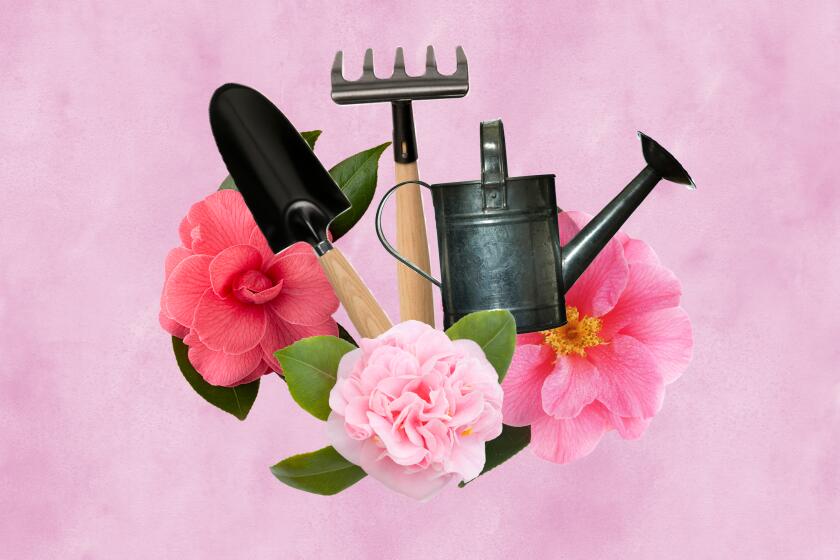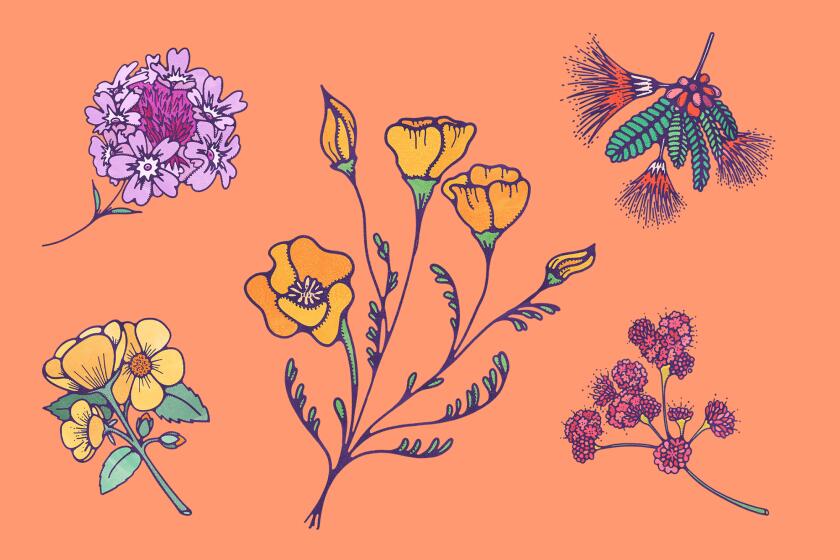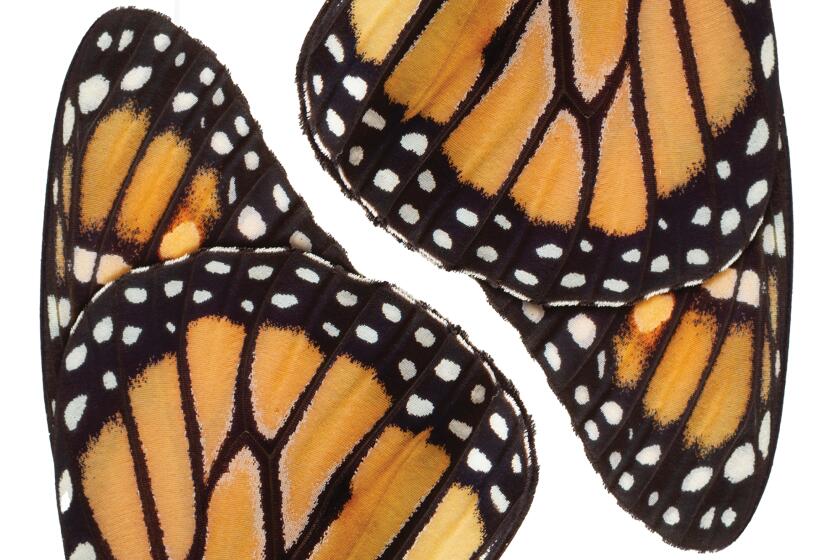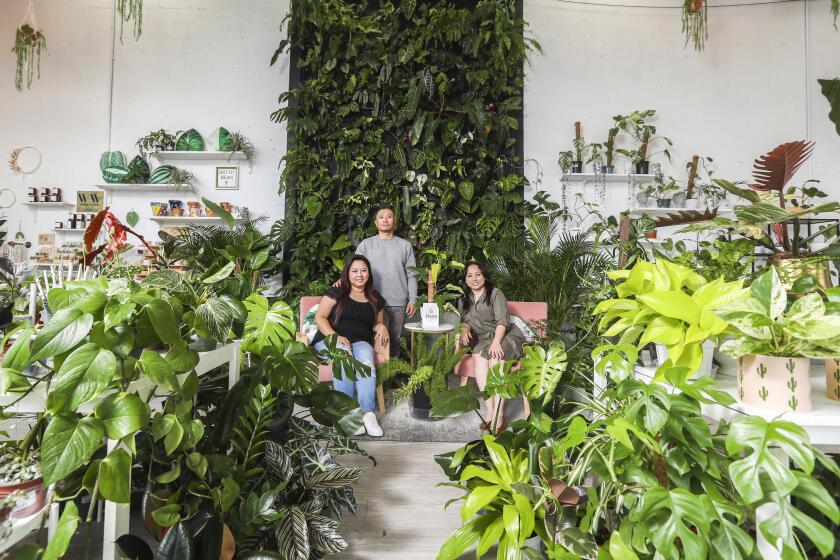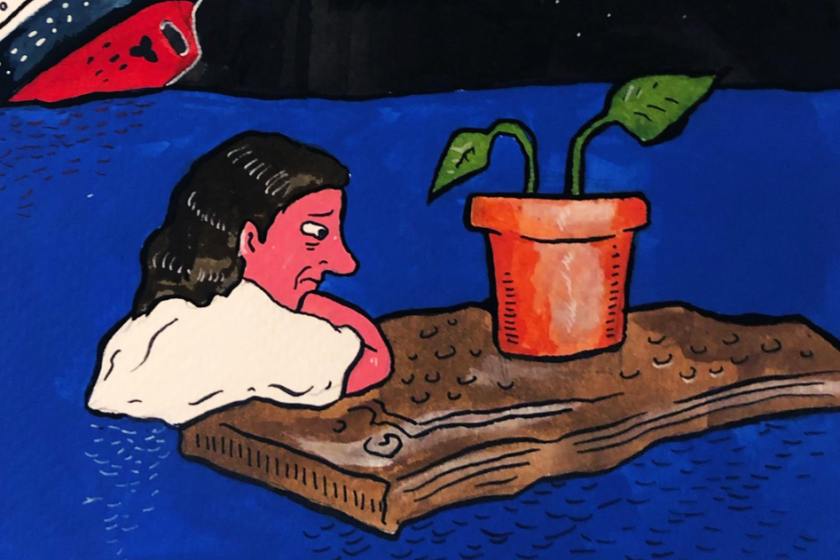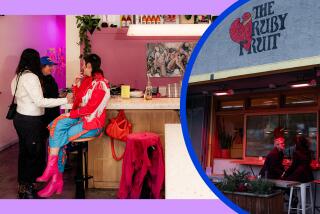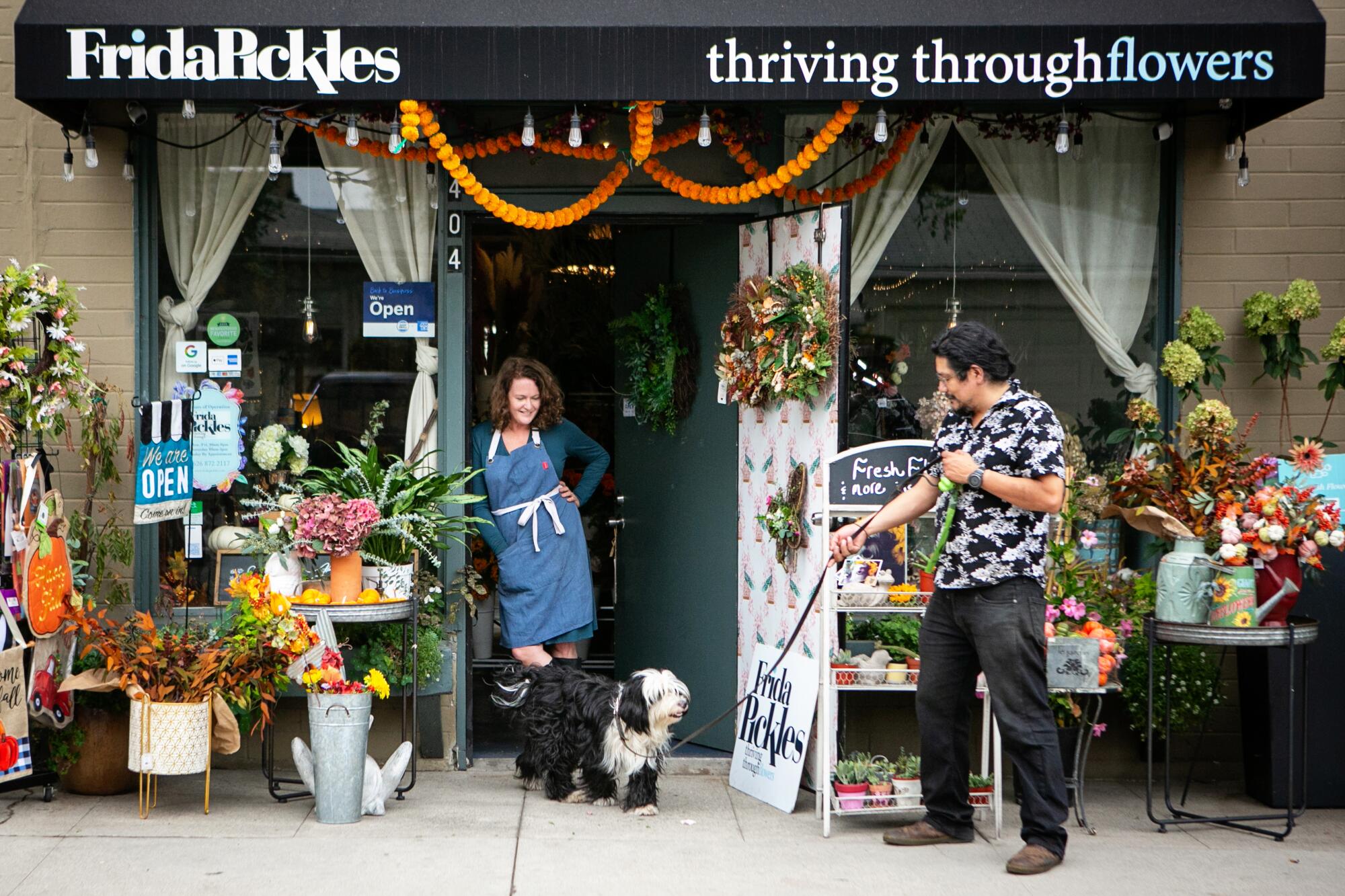
- Share via
This is the latest in a series we call PLANT PPL, where we interview people of color in the plant world. If you have any suggestions for PPL to include in our series, tag us on Instagram @latimesplants.
Juan and Susan Sanchez had their daughter, Sofia, in mind when they opened Frida Pickles, a plant, flower and gift shop on Leslie Drive in San Gabriel. The Sanchezes make it a point to employ people with special needs and those who are differently abled.
The store’s tagline — thriving through flowers — is more than just a motto printed on the shop’s awning. It refers to the owners’ mission to use the shop as a way to employ residents who have special needs , like Sofia, 13, who is autistic.
“Just like people, all flowers and plants are different. And we all deserve a chance to thrive. That’s always been our mission statement,” Susan Sanchez said.
What can gardeners and plant lovers do in the winter in L.A.? Plenty. It’s time to take a class, prep your pots and plots, and dream of summer fruit.
Juan is a seasoned restaurateur, and has been in the hospitality business for over 15 years. Susan is a sustainability professional who has worked in both the private and public sectors, including for the city of Los Angeles. She studied botany and plant and garden design for more than a decade.
Their store is named after their dog, a 3-year-old Tibetan terrier with fluffy white bangs and an open-mouthed smile.
Opened in May 2019, the lush storefront features a variety of plants, flowers, lawn ornaments and more. In fact, the shop even sells pickles, once they get approval from Sofia, who is chief pickle taster.
In a recent Q&A, Juan and Susan weighed in on plant matters and how the pandemic has affected their small business.
Let’s start with the name, Frida Pickles.
Juan: I always thought if I have a second daughter she would be named Frida. I always loved the name Frida Kahlo — my parents house is, like, four blocks away from the house where the late artist had once lived [in Mexico City, where Juan grew up]. But instead of a human daughter, well, we had a doggy daughter. The pickles part is because Susan and Sofia love pickles.
We hired a branding agency and spent money on [trying to figure out what to name the store.] And at the end of the day, they said, “This is a great name. This is a great brand name.”
Ceanothus for Taurus. Lupine for Cancer. Here’s everything you need to know about pairing California native plants with your sun sign.
And Frida Pickles is the mascot.
Susan: Frida’s not a fully certified therapy dog. But she is a type of breed that is very intuitive, very smart with managing and handling our staff and helping them to engage. Even when Sofia sometimes walks too fast, Frida is there to guide her, nudge her along, help her see in a way where she’s kind of not bumping into things. Frida found her way into our family. And we felt like, special needs adults, they really have a hard time finding a place in the world. And so Frida would be fitting for us. She represents everybody.
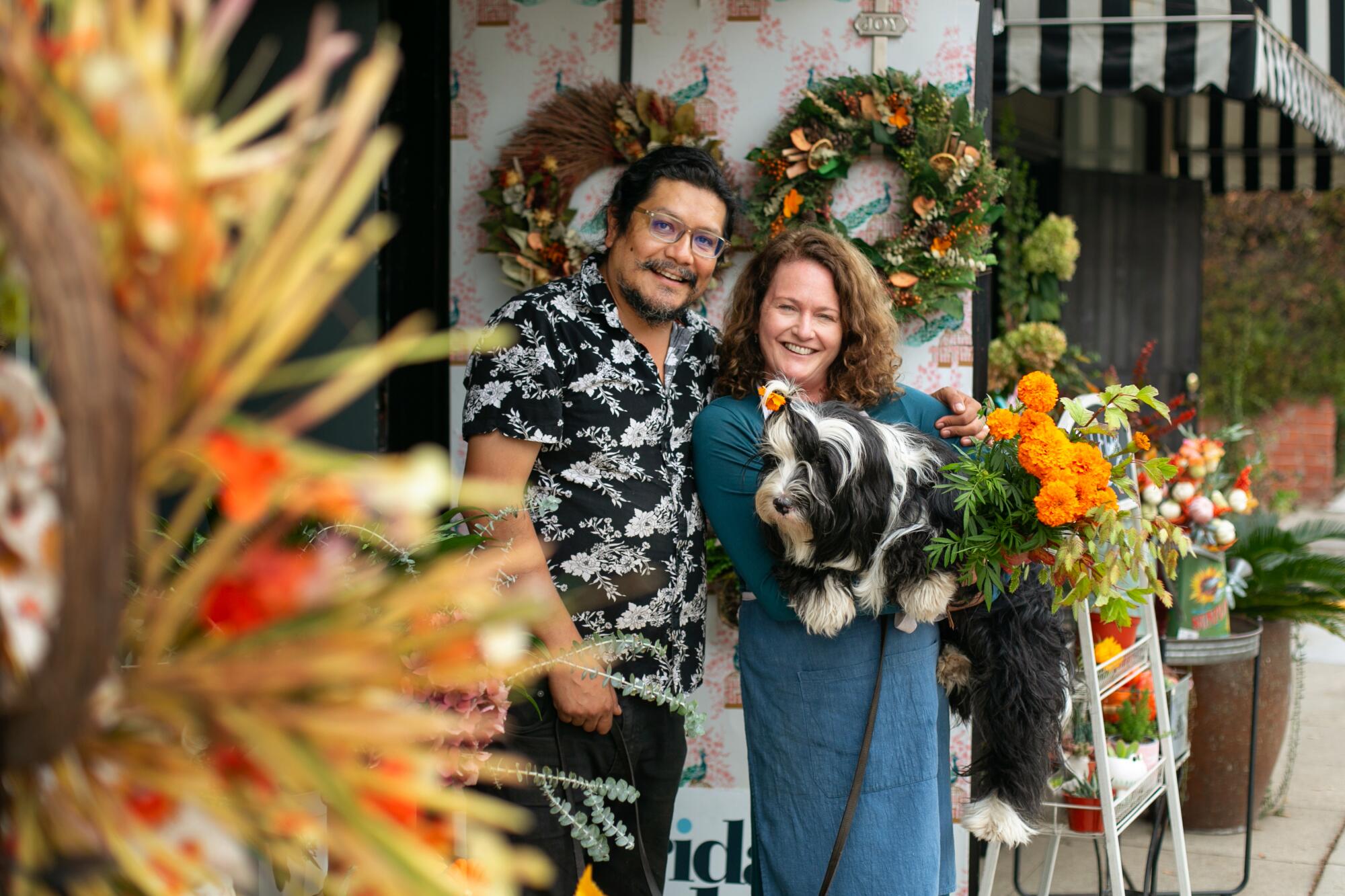
Where did you two meet?
Susan: We were set up in London by a mutual friend. I was studying at Imperial College and Juan was living and working there. I was studying taxonomy and advanced biodiversity.
Juan: I was working as an assistant manager at a brewery.
How has it been working with each other as a couple?
Juan: We have our challenges, like any other couple. It’s challenging but is wonderful. It helps to have something in common. Helping others is what I have in common with my wife. We put ourselves first, of course, but we want to keep helping others.
For example, one of our neighbors, her husband is in the hospital and she has dementia and we are always making sure that she’s OK. Bringing food and bringing flowers to the hospital for the husband. You know, these kinds of acts of kindness need to be coming out from your heart.
We spent the day with L.A. County’s top monarch butterfly counter, and ask: Can this endangered species survive?
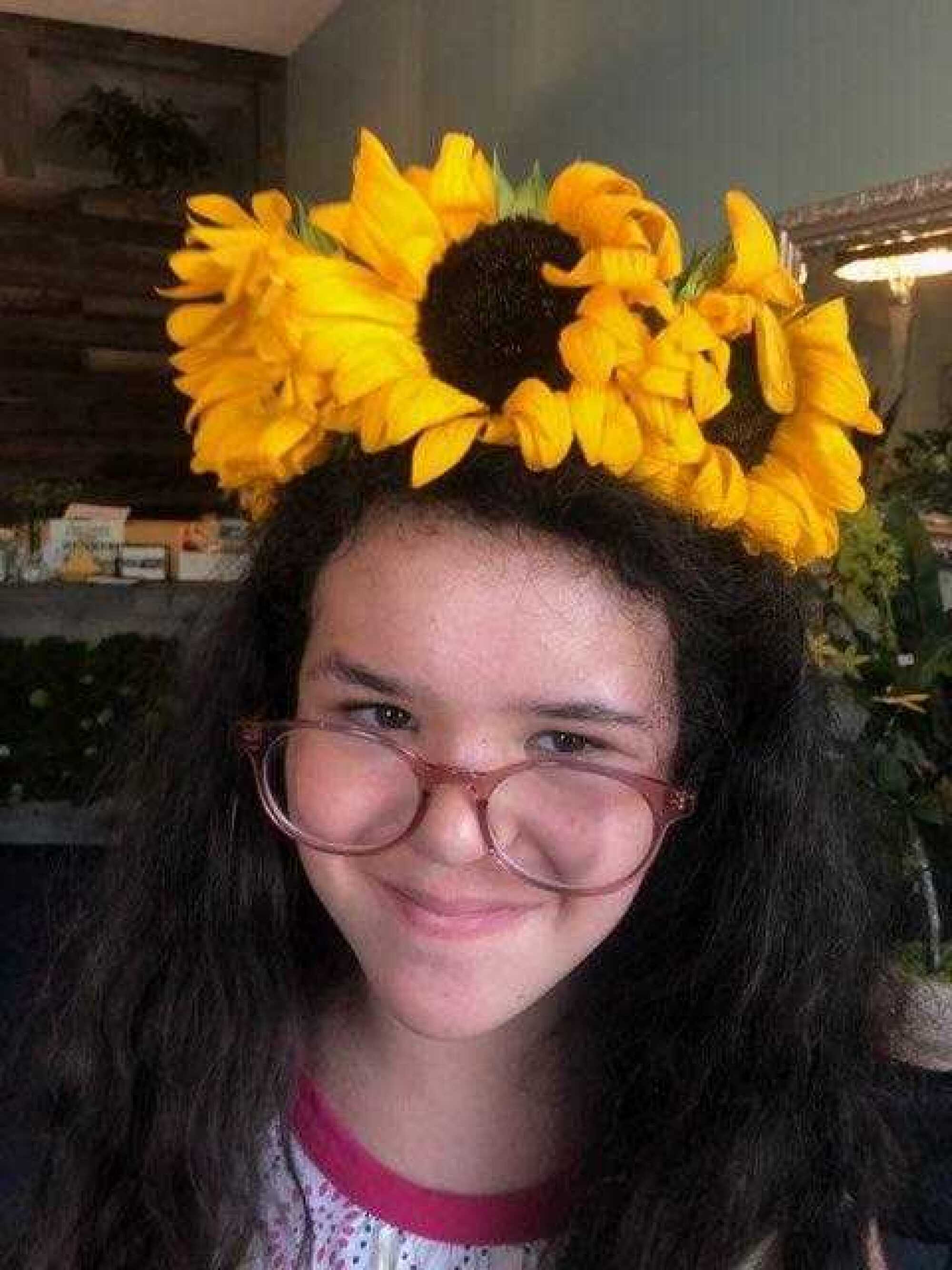
Is there a secret to making it all work?
Susan: To know what you’re good at and admit what you’re not good at. And you have to admit what you’re really not great at. And just admit it right away. Because it’s a partnership, and it’s just like a marriage. It’s totally OK not to be good at everything. And to also really, really try as much as we can to step back a lot of times and give each other that space. It’s a very small space. I’m only there on weekends right now. And it’s also a crazy yet beautiful thing to do with your spouse. And the fact that this is our third business just proves that we are both crazy and in love.
How do you staff your shop?
Susan: We work with partnering organizations [including LIFT and the Institute for the Redesign of Learning] and the workability programs in high schools and community colleges that already are working with special needs adults and looking for opportunities to train and employ them. We not only feel those partnerships are important to strengthen how and where we can help support but also they provide us with support and onboarding and management.
And I should say, all employees are paid. They’re actually paid above the minimum wage. So that’s really important for us. But really, we didn’t have a playbook or a template to follow.
Tammy Ha sold rare plants for fun at her family’s water store in Santa Ana. Now she has two plant stores of her own.
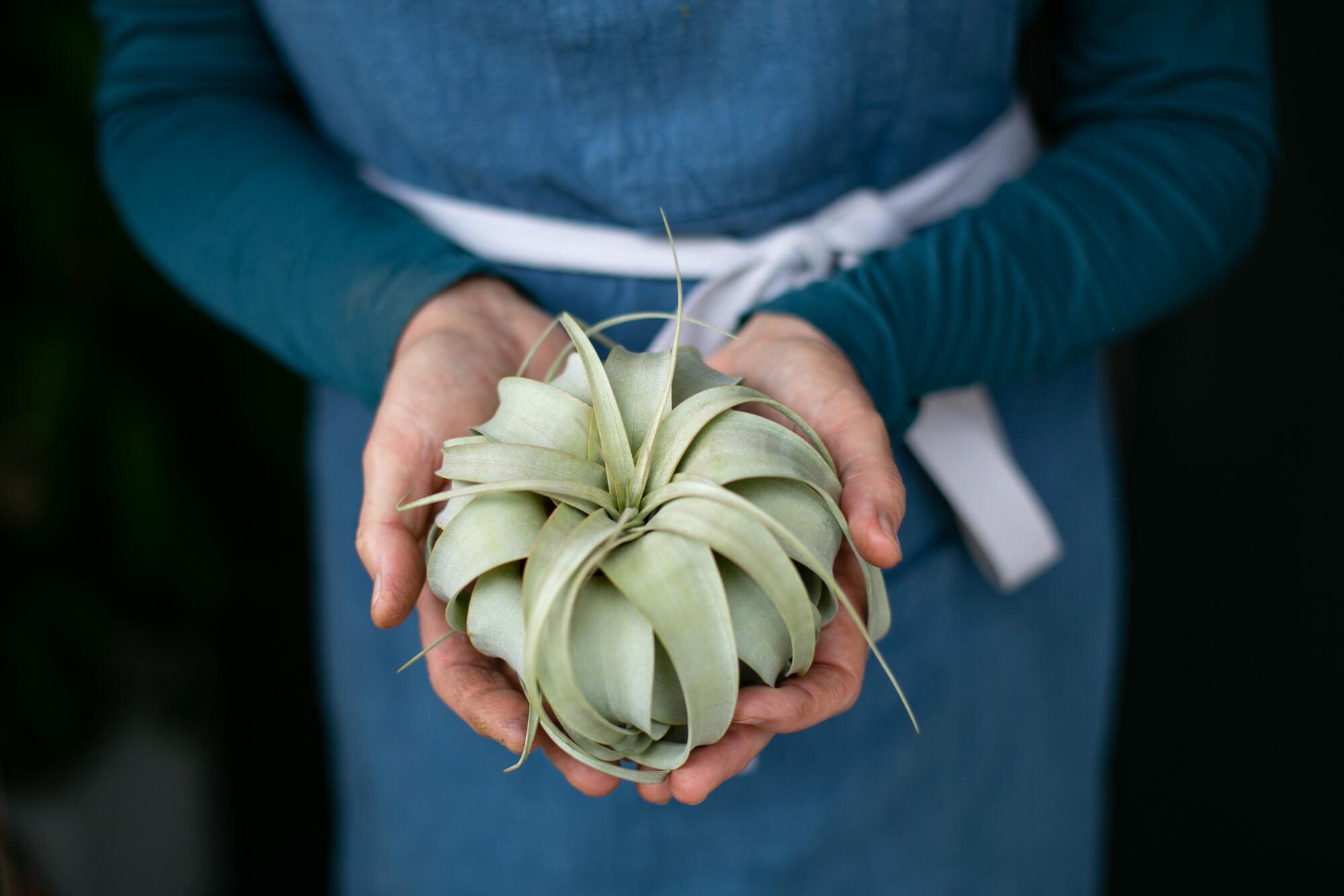
You’re using your own experience as a guide?
Susan: Our child has special needs and developmental disabilities and is neuro-atypical. So we feel it’s really important that we use our own experience in how we work with our staff. And every person is different. So we really modeled the program. So for example, some staff get very stressed if it’s more than a short shift. So a longer shift would not work [for them]. Or when we turn off the lights substantially for some [employees who are very sensitive to light] and keep the spotlights on the plants against the wall.
You would like to see other businesses do the same?
Susan: We realize there’s just such a need for employment. I have had parents of special needs [employees] who say, “Oh, thank you so much,” or parents that sit outside in their car [while their child works]. And they’re so worried because [the children] have never either left the house to do something like this or been away from their parents really.
If you’re a special needs parent, I can say you’re not just a helicopter parent, you’re like a stealth force jet, like coming in always thinking people are trying to get over on you and worried about your kid. I know a lot of these parents and we both just know how to work with some of the kids.
One artist’s attempt to save a dying plant.
How have you fared during the pandemic?
Susan: I think during COVID the rules were hard to follow with the mask-wearing and some of [the parents of the young adults working here are worried] about the Delta variant right now. So we have a very small staff and we make it work. We feel like we can’t offer full-time employment, but for the future, we can be a stepping stone, we can be something on a résumé and actually be a calming environment.
COVID knocked the wind and bank account from us and sadly we lost loved ones to it, but it has not broken our spirit.
We’re really creating a community, and also we feel like we want to be a voice for these kids and spread the word. ... I think if we can be some sort of domino effect, that’s why we’re doing it. We want Sofia to hopefully be super into running this place one day. Maybe not, she might just be into something else.
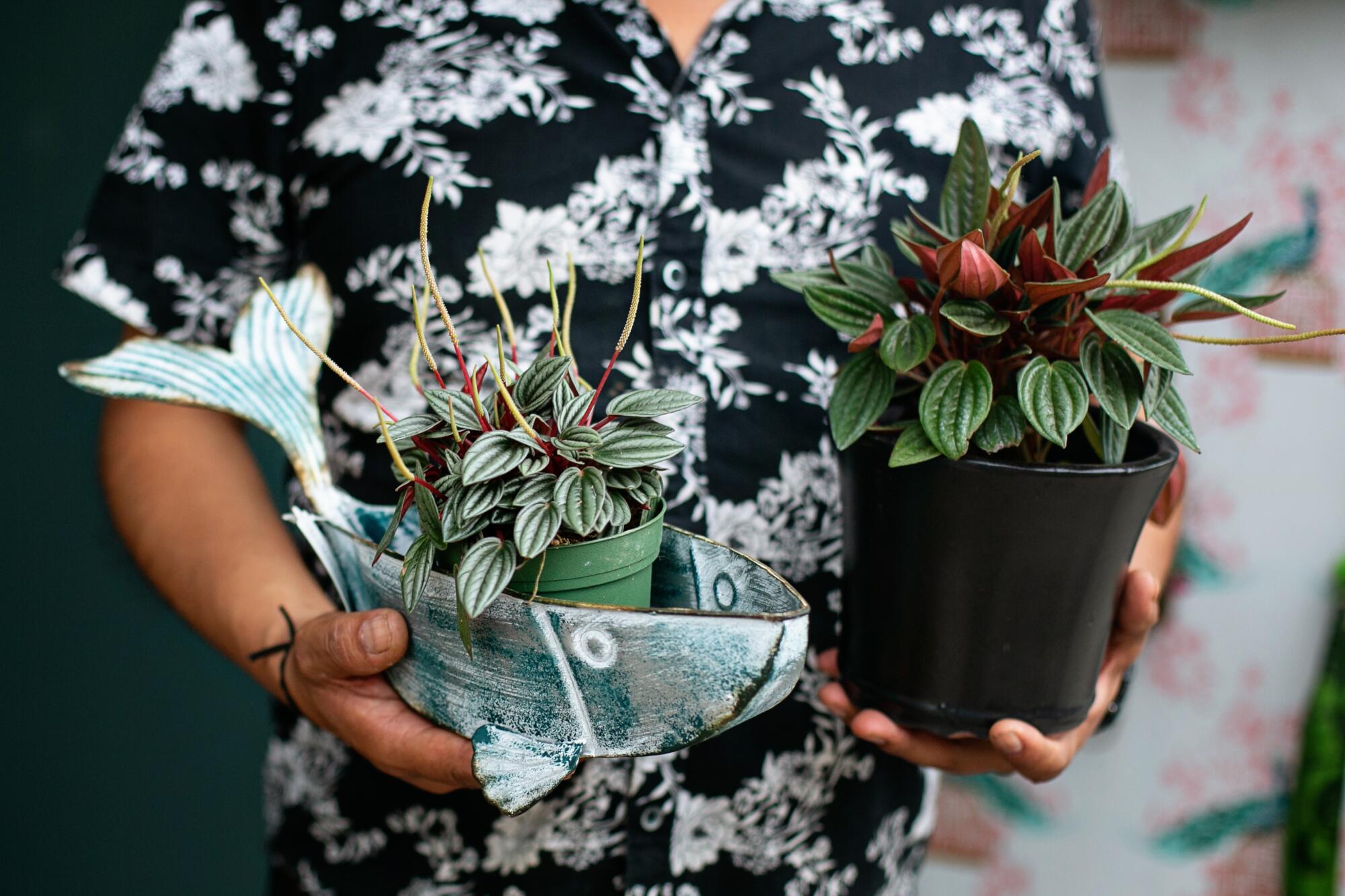
What have been some of your favorite experiences at Frida Pickles?
Juan: One of our best customers is fighting cancer and we just make them soup every week. And we’ve become family because of this place. Unfortunately, my parents died of COVID in Mexico, and this couple [who are customers at the shop], they were so supportive to me, they were like my parents reincarnating [in] them. And it was so magical because kindness comes in different shapes and colors. They just show me that these shops give hope to people.
This is important: People are like a gateway, they’re a part of helping a retail business succeed. But it’s so sad when you go to the grocery store or to the pharmacy. Now they sell flowers and plants. How can you compete with that, and you have these loyal people, they tell you, “I want you to keep the lights on.” And for that reason, I say I don’t want to close because these people need us.
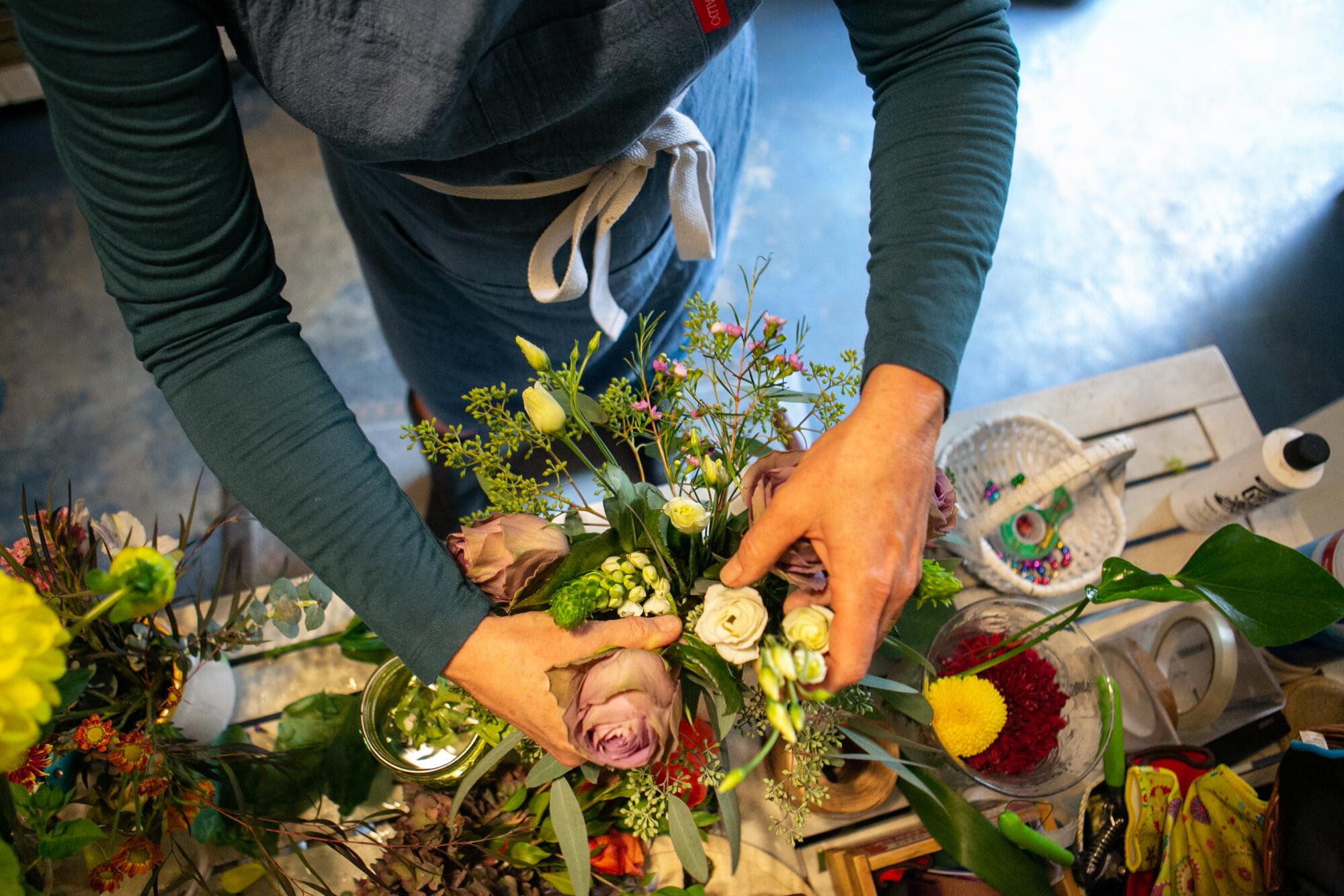
Do you have any advice for people just getting into plants or those who want to start a business?
Juan: When you start your business, don’t lose your faith. It’s the thing you just don’t want to lose because whatever you pray to, be it some spirit or religion or whatever, it’s to help us keep optimistic. Rome wasn’t built in one day. Everything takes time and you need to be tenacious, you need to be there. And you need to be resilient.
And one of my favorite flowers is the dandelion because it emigrates from a different place it didn’t belong to and it becomes for some people something they want to eradicate. The dandelion is actually ... used [by some healers] as medicine and their leaves used in salad, but people unfairly dislike them. Well, that’s our resilience. And to keep a small business, you need to be a dandelion to survive.
How do you see your business evolving?
Susan: The [other] reason we did not name our store a catchy plant-shop name is because we want to expand this to other franchises, other verticals, we see as expanding our inclusive employment mission. And because also Juan is an incredible restaurant entrepreneur, he’s kind of downplaying that, but before we launched Frida Pickles, we were going to do both a restaurant and a florist at once. And then COVID hit. Stay tuned on that.
We always end our Q&As with the same question: What are your favorite plants?
Juan: As well as dandelions, I’m currently a fan of rare philodendrons and polka dot begonias that are currently in the store.
Susan: I can say I’m a big fan of this plant lately, which is the Chinese money plant. It’s one of my all-time favorites. It’s hard to propagate. Mother in law tongue is Sofia’s [favorite] and I’ve been propagating in the back — we actually have a little nursery in the back. We do a lot of our own propagation and we call it the plant hospital. ... Also, sunflowers. They’re beautiful. Happy. Love the yellow.
More to Read
Sign up for The Wild
We’ll help you find the best places to hike, bike and run, as well as the perfect silent spots for meditation and yoga.
You may occasionally receive promotional content from the Los Angeles Times.
